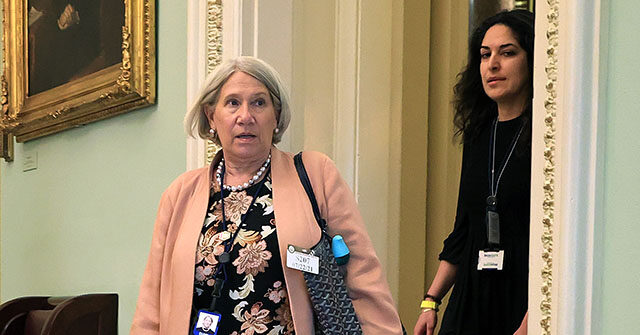In a recent discussion during the New York Times’ DealBook Summit 2024, Anita Dunn, a senior adviser to President Joe Biden, articulated her belief that the Department of Justice (DOJ) under Attorney General Merrick Garland has not been weaponized against political adversaries. Dunn’s contention, that the DOJ has operated independently and without political bias, is notable given the backdrop of heightened scrutiny and accusations surrounding the actions taken by federal agencies in relation to former President Donald Trump. Among the incidents referenced was the unprecedented FBI raid on Trump’s Mar-a-Lago estate on August 8, 2022, an event that many supporters of Trump viewed as a clear example of governmental overreach and political targeting.
This raid and subsequent investigations culminated in Trump being indicted for allegedly possessing classified documents. Notably, Biden himself faced scrutiny for a similar issue, as he was found to have retained classified documents post-tenure. However, Special Counsel Robert Hur concluded that Biden would not face prosecution, citing the president’s age and recalled memory as factors in the decision not to pursue charges. The implications of these cases have raised questions among political observers regarding fairness and impartiality within the DOJ and whether the application of justice has been uniform across political lines.
Despite Dunn’s assertions, Jason Miller, a prominent aide to Trump, challenged her claims head-on. During his response, Miller raised concerns over the perceived double standard in how the DOJ has treated Trump in comparison to Biden. He asked Dunn whether she had overlooked the past four years of political turmoil, specifically referencing the politically charged nature of the FBI raid on Mar-a-Lago. Miller’s remarks highlighted a widespread sentiment among Trump supporters that perceived political individuals within the Biden administration and the DOJ were using their positions to undermine Trump’s political career.
Miller’s argument was further illuminated by the assertion that DOJ activities represent a significant threat to democracy, citing widespread belief that the Biden administration openly weaponized government agencies against the former president and his allies. He declared that never in American history had there been such a level of judicial and investigative retaliation against a political opponent, a sentiment echoed by many of Trump’s supporters who see these actions as unprecedented and dangerous for the democratic fabric of the nation.
The broader implications of these discussions speak to the contentious political climate in the United States, where accusations of hypocrisy and corruption are rife. Dunn’s portrayal of Garland as a non-political attorney general contrasts sharply with the views of Trump and his supporters, encapsulating the deep divisions that have emerged between different political factions in the country. As both sides present their narratives, the question remains whether there will ever be a consensus regarding the actions taken by the DOJ under the Biden administration.
As political tensions continue to simmer, the ramifications of the DOJ’s actions on public trust and accountability loom large. With Miller’s strong rebuttal to Dunn’s claims, the debate is set to persist as both parties seek to define truth and justice in their own terms. The tug-of-war over the narrative surrounding the alleged weaponization of justice will likely remain a defining feature of U.S. politics as the country moves forward, concerned that the balance of power between political leaders and law enforcement may be at stake. As we analyze this ongoing saga, it remains clear that the intersection of law and politics will continue to provoke discussion and potentially shape future governance.

